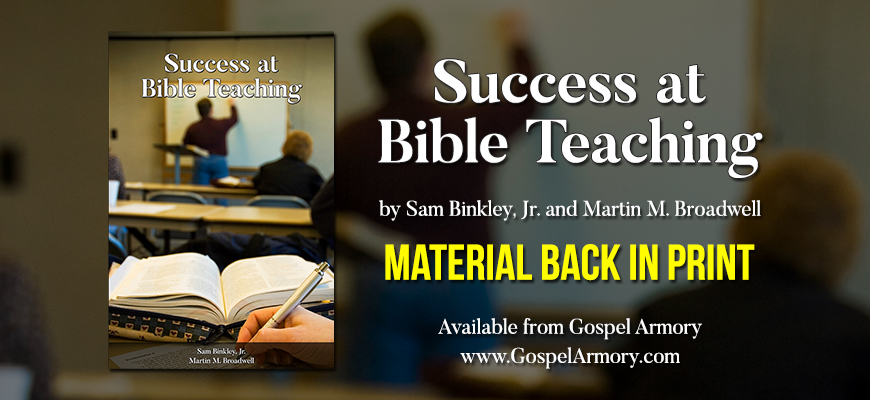
As ridiculous as it may seem, there are many times when we conduct classes without ever really deciding exactly what it is we’re trying to accomplish. It may be that someone says, “We ought to have a class for the young married couples. After all, we’ve got so many of them, it would make a good class.” This isn’t to say that it wouldn’t be a good idea to have a class for the young couples, but it is to say that there ought to be a better reason for having it than just that “we’ve got a lot of them.” Other classes fall into the same category. We have ladies’ Bible classes sometimes for no better reason than that “We’ve always had them.”
Ideally, there should be a need before we have the class. If there is, then there should also be some idea of what is going to be covered, what the group can expect to learn, how long it will take to get there, and when they can expect to finish the course.
For example, if we’re going to have a young married couples’ class, we should decide ahead of time what it is they need, either from a look at what they’ve studied before, from their background, or from talking to them. We should be thinking about making up a weakness in their Bible background or solving problems they might have in their newly married status. It isn’t likely that we should start the class then decide that this would be a good time to study the book of Acts, 2 Samuel or Hebrews. To get the excitement needed to launch the class to keep the enthusiasm going to a successful conclusion, they should know that they are going to study a specific subject like “The Christian Home” or “Bible Couples” or “Young Men and Women in the Bible.” If material isn’t available, this is an excellent time to let the group do some good Bible searching. Assign different ones to come up with a family each week or report on different aspects of the Christian home. With just a little guidance, they can have a “funtime” and learn a tremendous amount at the same time. As we have said, though, there needs to be a projected purpose and stated ending time for the study whether six weeks or six months. That way, they can keep their enthusiasm up and know that they are learning a specific thing in a specific time frame.
The above post is an excerpt from the book, Success at Bible Teaching. Follow the link to learn more about the book and purchase your copy today!
